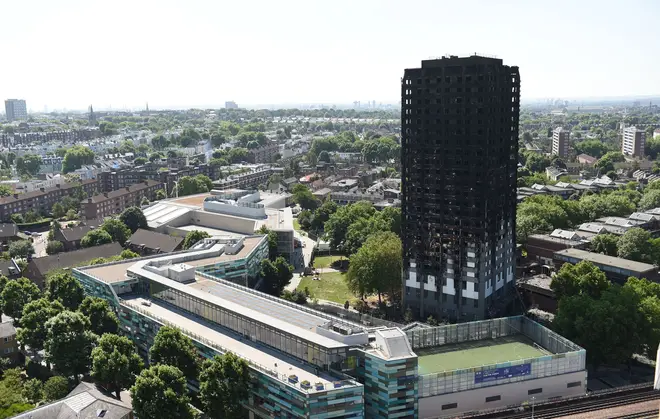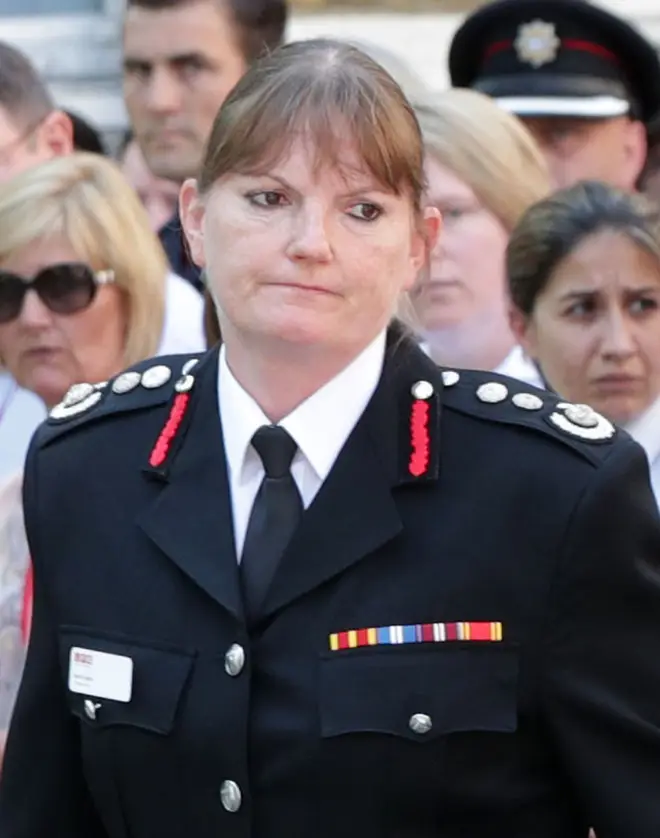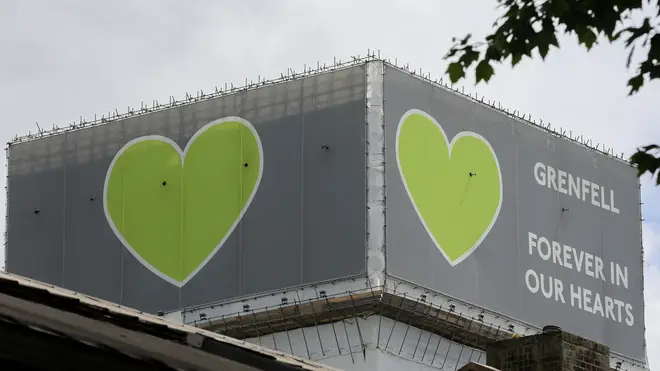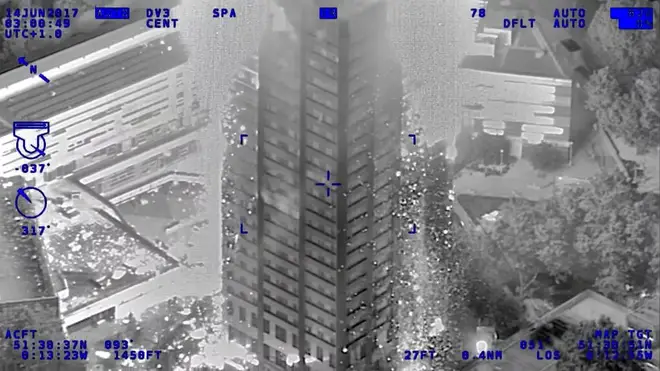
Ben Kentish 10pm - 1am
29 October 2019, 05:26

The London Fire Brigade is accused of "systematic" failures and "serious shortcomings" in response to the Grenfell Tower disaster.
The findings are contained in the official report into the tragedy, which is due to be published on Wednesday but has been seen by several news organisations.
The report also accused LFB Commissioner Dany Cotton of "remarkable insensitivity" after she said she would not have done anything differently on the night.
The report said the Commissioner's evidence "betrayed an unwillingness to confront the fact that by 2017 the LFB knew (even if she personally did not) that there was a more than negligible risk of a serious fire in a high rise building with a cladding system."
The official report into the tragedy has also criticised the London Fire Brigade's "stay put" strategy - when residents were told to remain in the block for nearly two hours after the start of the fire.

Sir Martin Moore-Bick, who chaired the investigation, suggests if it had been revoked earlier it would likely have saved lives.
Residents were told to stay in their flats by emergency services at the scene and when they called 999, this policy was in place for two hours after the fire started.
It was not until 2.47am that the strategy was changed, according to the 1,000-page report.
Sir Martin said the decision to reverse the advice "could and should have been made between 1.30am and 1.50am and would be likely to have resulted in fewer fatalities."
The report praised the courage of responding emergency services at the scene of the fire, and Sir Martin said control room staff who answered 999 calls "undoubtedly saved lives" but a deeper look into the operations showed "shortcomings in practice, policy and training."
He said senior control room staff had not been given "appropriate training on how to manage a large-scale incident."
The report said firefighters who responded to the tower block fire did not have training on how best to combat a cladding fire.
Four experienced members of the first crews to have fought the blaze had not received any training on the risks posed by exterior cladding or the techniques to be deployed in fighting fires involving cladding, the report found.

The report found the main reason the flames spread "up, down and around the building" was due to cladding made from "aluminium composite material (ACM) rainscreen panels with polyethylene cores, which acted as a source of fuel."
72 people were killed in the fire.
The report was due to be published publicly on Wednesday, but advanced copies were given to the survivors and relatives of those who perished.
But copies were shown to a number of media organisations which the inquiry spokeswoman branded disappointing.

A spokeswoman for the Grenfell Tower Inquiry said: "The chairman of the Grenfell Tower Inquiry, and indeed the whole inquiry team, is dismayed and disappointed that the Daily Telegraph and subsequently other media have chosen to deprive those most affected by the fire - the bereaved, survivors and residents - the opportunity to read the report at their own pace and without the distraction of public discussion and commentary ahead of publication.
"The inquiry has no further comment to make at this time."
A London Fire Brigade spokeswoman said: "The inquiry's findings are not being published until Wednesday morning and it would be inappropriate for us to comment on them until then."
London Assembly Member Andrew Dismore said that the London Fire Brigade had been "honest about the mistakes that were made on the night," when addressing the London Assembly Fire, Resilience and Emergency Planning Committee.
He said the committee heard that "significant progress is being made with new training, equipment and policies. It was welcome to hear that much of this is already in place, given that we now know there are hundreds of dangerous buildings in London."
He added the committee, which he chairs, will continue to monitor LFB’s progress "against these essential improvements, including ensuring there is preparation in place for mass evacuations. "
The Assembly Member said people should not criticise individual firefighters but should focus on the larger situation.
Mr Dismore said: “Criticism of any individual fire fighter’s actions on the night risks losing the focus on the fact that they should never have been faced with that situation. The Brigade’s areas of improvement are well documented. What appears new in the leaks today is the Inquiry’s findings that the cladding was non-compliant.